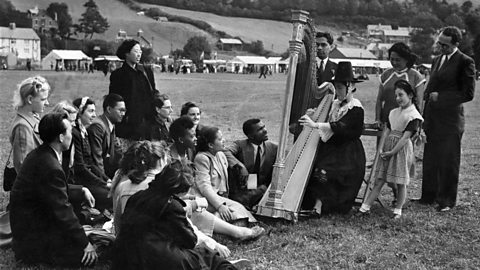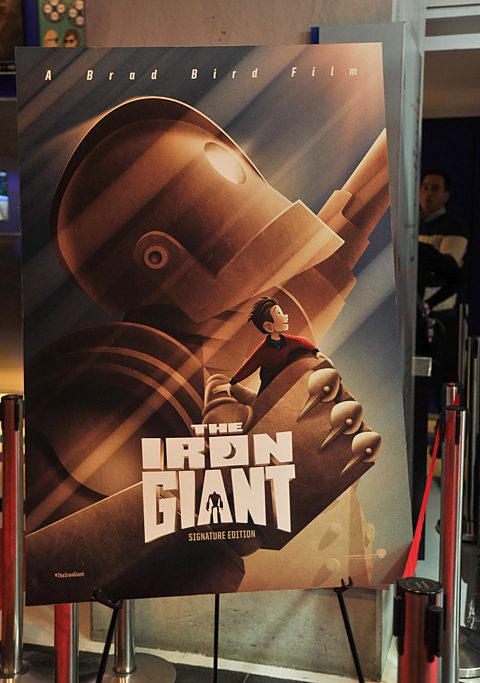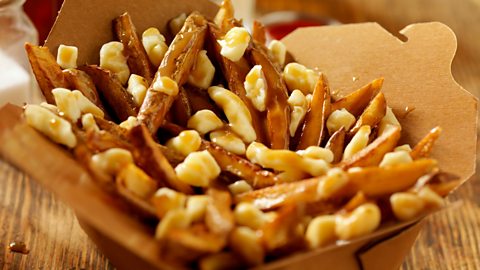When we think about the symbols of UK life that pop up around the world, they may be pop music, a nice cup of tea or Shakespeare.
There’s also another category: dishes and items which look familiar to UK residents that have been given a whole new twist overseas.
±«Óătv Bitesize takes a look at what happens when a homegrown favourite is welcomed into a different culture - and how products identical to ones on the UK high street sometimes need a change of name.
Fish and chip shops
Yorkshire pud and Bakewell tart are traditional British dishes which can get your tummy rumbling - but a trip to the fish and chip shop for a teatime treat is arguably one of our best-known culinary habits.

Variations on the chippy have turned up all over the world. While cod and haddock are the usual ingredients in a UK fish supper, the seafood particular to a certain area tends to crop up on the menu elsewhere.
In Hong Kong, customers can order hoki or blue cod, traditionally sourced in New Zealand waters, from one fish and chip shop. The menu even includes oysters - either raw or cooked - that can be followed by a battered pineapple ring. Canada is another territory where you can find a fish supper. One of the country's chip shops serves dishes including Lancashire Fishcakes (a layer of fish between potato scallops) and a banana fritter dessert.
An Eisteddfod in Australia
Crystal clear vocals, powerful verse and a celebration of Wales’s rich heritage can all be found and enjoyed at the National Eisteddfod. The history of the event can be traced to 1176, while the organisation of the festival known today and loved by millions of people started back in 1861.

The National Eisteddfod is a competitive festival with prizes in many different categories. Its previous winners include the opera star Bryn Terfel. All aspects of the arts are celebrated, including dance, the visual arts and music. It’s also a prime opportunity to promote the Welsh language.
It is a particularly Welsh institution, but one that has made its mark overseas, largely through emigration. When the Australian gold rush enticed people from around the world to find their fortune, some Welsh miners tried their luck too. When they weren’t digging or prospecting, and as they became more settled, they helped influence some of the arts and music festivals that were set up. Although not always called an Eisteddfod, they followed a similar competitive format. An official Eisteddfod was started in Canberra in the 1930s and the Australian National Eisteddfod has been held annually since 1955.
An Australian Eisteddfod is not, though, a direct copy of its Welsh inspiration. Among the singing, poetry and musicianship, it’s not unusual to find competitions for gymnastics and cheerleading on the programme too, perhaps reflecting Australia’s strong sporting heritage.
Popular TV shows
There is a long history of UK television shows being remade for audiences overseas. It’s often done to better suit the sense of humour in other countries, and the faster or slower pace of shows in a particular territory.
An early example is the ±«Óătv situation comedy Dads’ Army, which was made between 1968 and 1977. Based on the adventures of a ±«Óătv Guard platoon in a UK coastal town in World War Two, it was a ratings hit and spawned two feature films, one as recently as 2016.
In 1976, the American Broadcasting Company attempted to remake Dad’s Army as The Rear Guard, following a similar group of characters in the American Civil Defense. It was not a success and only one episode was made.

There are other, more successful, examples. There is currently a successful US version of the sitcom Ghosts which follows the same basic premise but reflects the different cultures in the US and UK. For example, the oldest character in the UK series is Robin, the ghost of a caveman. This was changed in the American series to a viking called Thorfinn, who would be one of the earlier European settlers on US soil.
Remakes of British shows aren’t exclusive to the American market either. India has remade ±«Óătv drama series and, in 1993, there was a Dutch version of the soap opera EastEnders. Set in a square in Rotterdam, Het Oute Noorden (The Old North) featured locations similar to the Queen Victoria pub and the launderette and was filmed in a specially built version of Albert Square (called Mayors Rose Square). It ran for one series.

Book titles in the USA
Marketplaces are different all over the world, and something which sells well in one country may need a bit of a tweak to do the business in another.
For example, the Where’s Wally? puzzle books are Where’s Waldo? in the US and Philip Pullman’s Northern Lights from the His Dark Materials series was published as The Golden Compass. But why does this happen? Responding to the question in The Guardian newspaper in 2018, Rebecca McNally of Bloomsbury Publishing explained: “Until recently, changes were common – for commercial reasons, cultural sensitivity or because of a pre-existing book with a similar [name]. And really, it did not matter unless/until a film came out that favoured one title over the other.”
Titles can also change for practical reasons. Ted Hughes’ children’s classic The Iron Man is The Iron Giant in America, to avoid confusion with the popular Marvel character of (almost) the same name.
This article was published in July 2023.

Cake Britain: Eight traditional treats from around the UK
Ever made Fifteens in a fridge, or tried a slice of Selkirk bannock?

The takeaway treats that have become national treasures
How poutine, kebab pizza and more found their way into a country's heart

Quiz: Can you guess the book from its (badly described) plot?
Can you work out which books we're talking about from these terribly vague descriptions?
